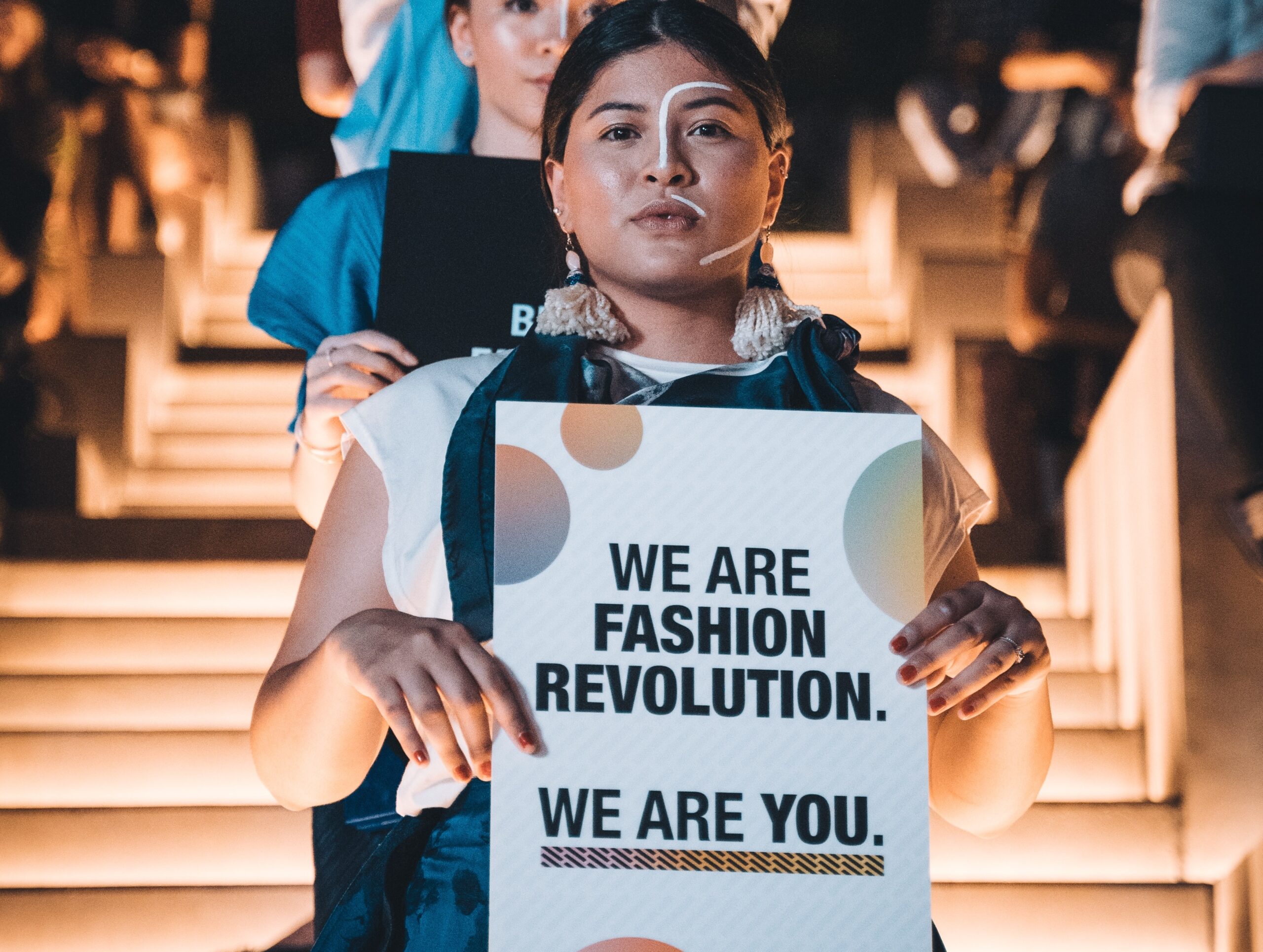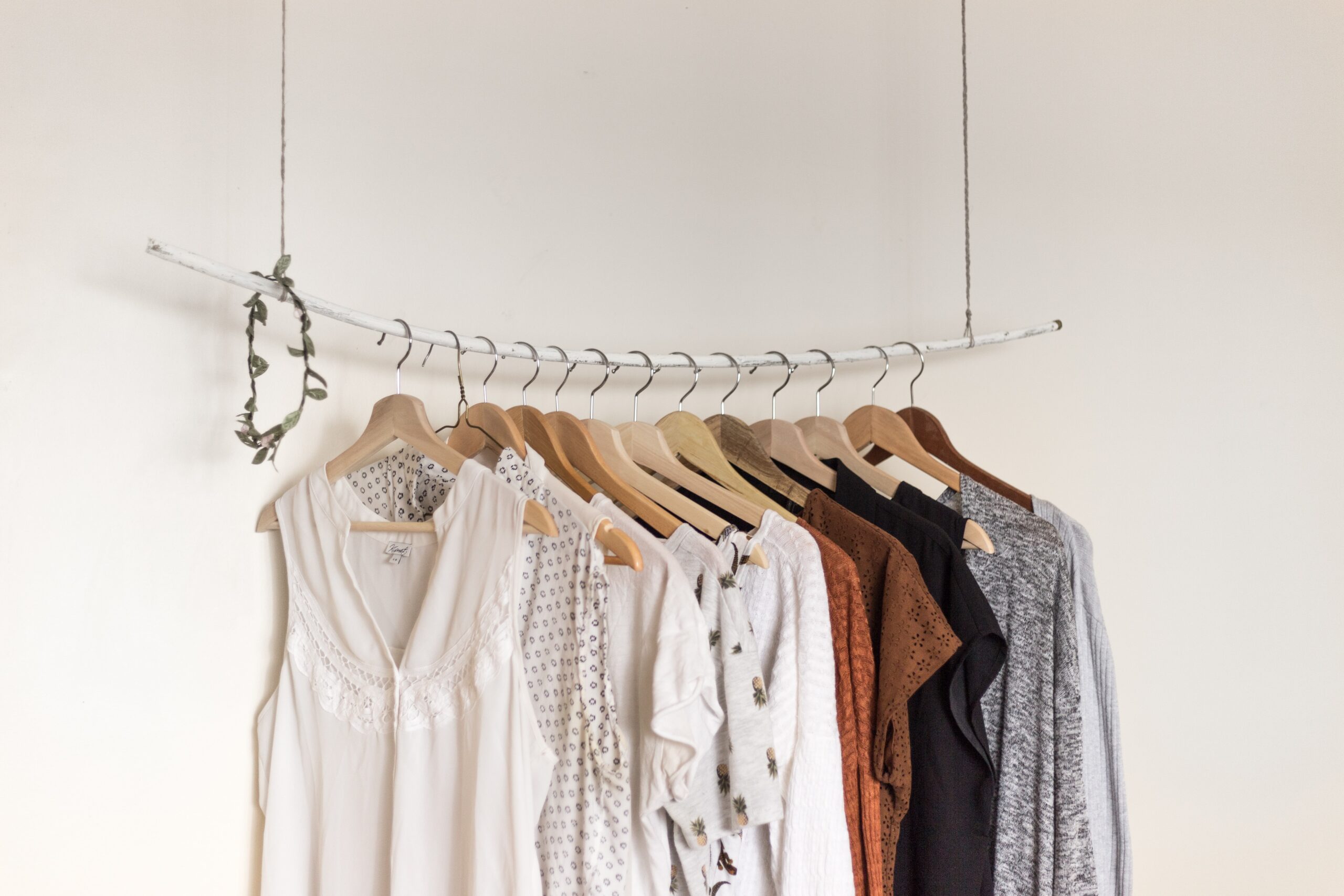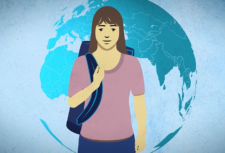This London Fashion Week, our business and human rights policy and research officer, Rocio Domingo Ramos, explains why the fashion industry must take action to tackle exploitation in the fashion industry – including here in the UK.

It’s London Fashion Week – one of the most awaited and acclaimed fashion events in the world. As all eyes are on London and the city’s most exclusive catwalks, our thoughts aren’t about the newest designs, labels and trends. Instead, the key question for us is: who is looking at the human cost behind the brands, and workers’ rights for the people that make the clothes we see on the catwalk?
Sadly, the underside of fashion doesn’t get nearly as much attention as it should. Exploitation in the fashion industry is endemic across the world. This is no secret: over the past year, we’ve been closely following the abuses of Uyghurs and other Turkic and Muslim-majority peoples, subjected to a system of forced labour imposed by the Chinese government in the Xinjiang Uyghur Autonomous Region.
What’s more, human rights abuses in the fashion industry also happen close to home. An example which hit the headlines was with garment workers in Leicester, UK, being paid the miniscule amount of £2-3 per hour – not even a third of the national minimum wage. Products made in those factories were sold by one of the UK’s leading ‘fast-fashion’ brands – a sad sign that even here in Britain, profits are too often put before people’s labour rights.
With the Covid-19 pandemic hitting the world’s most vulnerable the hardest, we’ve seen yet more proof of the inequalities that are embedded deeply in our global society. Those inequalities have been felt particularly acutely by people working in the fashion industry. Workers in the garment sector were left unemployed, unpaid, or in debt after global fashion brands cancelled billions of dollars’ worth of orders in the first months of the pandemic. This increased workers’ vulnerability to modern slavery, and exposed the need to overhaul the fashion sector’s business model.
There is an urgent need to go beyond “building back better” clichés and greenwashing initiatives. We need to see the fashion industry implement genuine reforms that put people before profit.
Our call to action

It’s time for change across the industry – and fast. We’re continuing to call for due diligence and accountability across the fashion industry:
- Fashion companies must make sure living wages and freedom of association are enjoyed by all workers in fashion supply chains, from those picking cotton and other raw materials, those working in factories, to those in charge of bringing the clothes you buy to your doorstep. Such basic rights are vital to reduce the risk of workers becoming victims of modern slavery.
- Brands must provide and support remedy for harm caused to workers during Covid-19 and beyond. That includes making sure workers receive lost payments and benefits and work with suppliers to rehire workers who lost their jobs during any crisis.
- Transparency of supply chains must remain a top priority. We need to see bold action taken by brands to map and disclose their suppliers and trace where their raw materials are coming from. Workers trapped in modern slavery need to know in which fashion brand’s supply chain they work in, to hold these companies accountable and seek remedy and change.
- Finally, we need the whole industry to join together in a race-to-the-top: brands should support mandatory human rights and environmental due diligence legislation, with a liability provision included, meaning that businesses could be held accountable in court for failing to prevent and remediate harm caused to workers and communities around the world.
These actions are critical in ensuring that the fashion industry protects – not exploits – its workers. Current business models need to change and supply chains need to be critically evaluated.
“We must keep up the pressure to ensure that the fashion industry puts people before profit. The prevalent fashion industry is built on a business model which creates exploitation and puts workers at risk. Fashion brands must end forced labour in their supply chains, respect workers’ rights – guaranteeing that workers are paid living wages and can join unions – and ensure that materials are produced sustainably.”
Chloe Cranston, Business and Human Rights Manager
While the industry itself needs to change, as consumers you too can help in the process.
We know you don’t want your clothes to exploit people or destroy our planet either. That’s why we’re calling on you to join us this London Fashion Week in calling out brands for complicity in Uyghur forced labour.
Here’s how you can take action:
In one minute:
- Tweet your favourite brands, calling on them to stop profiting from #ForcedLabourFashion, sharing this blog
In five minutes:
- Check out Forced Labour Fashion and join their campaigns
It’s time for people to come before profit. It’s time for the fashion industry to step up.
Join us.





